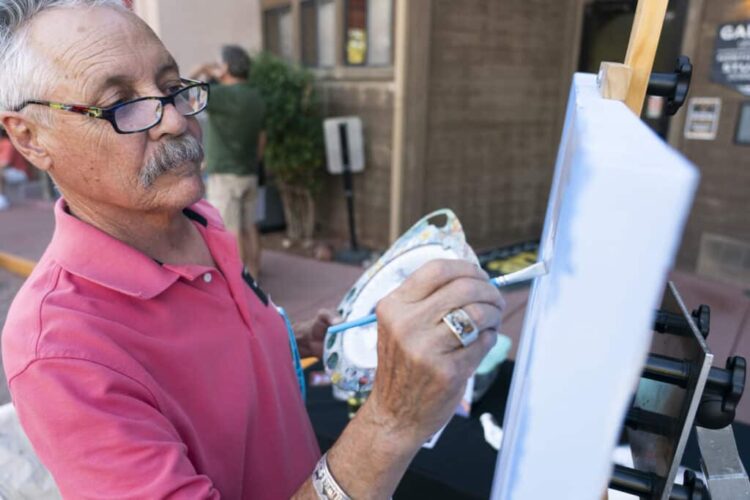For the Sedona Arts Center, the number 65 is noteworthy, as it represents SAC’s 65th year as an arts organization. Their very first exhibition in 1958 featured works by surrealists Max Ernst and Dorothea Tanning.
To celebrate the occasion, SAC wanted to further explore the meaning of numbers by asking artists to interpret which digits have significance in their lives and then to create a body of work symbolizing that meaning.
“NUMB3RS” features 35 artists’ work in all mediums including collage, glass, oil, acrylic and mixed media. The exhibit is now open and will run through Sept. 30. Executive Director Julie Richard said she was excited to see the caliber of art presented for this show.
“I was blown away by not only the artwork but the stories behind what these artists created. It’s engaging,” Richard said.
Nancy Lattanzi, the city of Sedona’s arts and culture specialist, judged the exhibition.
“This was very difficult for me to judge this exhibit because I thought there were going to be a lot of other judges so that we could collaborate. And it was just me,” Lattanzi said. “So I felt a little more pressure and I took it seriously. I read every single caption. I feel happy with the decisions I made, but it wasn’t easy.”
Ed Browne took first place for “The Grand Canyon.” Second place went to Nancy Rupert for “2020 Continent Breaking Apart,” and third place was awarded to Cindy Betzer Pharis for “Not my DNA. I didn’t kill Nobody.” Honorable mentions were Norman Carr for “Pop Art,” Amy Light for “101 Shards of Colored Glass,” C.J. Henderson for “Jacaranda,” Tom Rosenthal for “Geometric Numbers” and Rose Moon for “50 People and a Tree.”
Browne’s monochromatic painting of the Grand Canyon reflects the influence of Maynard Dixon and Ed Mell’s style of work, two artists whom Browne said are among his favorites.
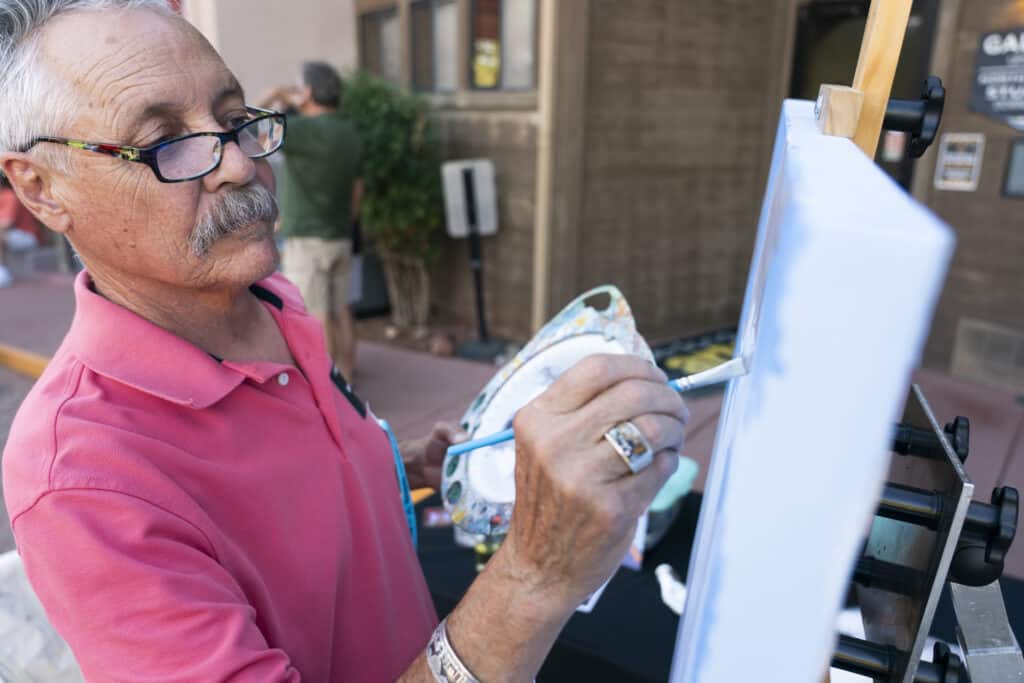
“I’ve had this painting in mind for over 20 years. I wasn’t good enough to paint 20 years ago, but I am now because I’ve got 20 years of experience,” Browne said. “Sometimes you get lucky. From start to finish, it just really went well.”
Browne’s painting features Bright Angel Trail, a popular location in the Grand Canyon.
“Ed’s work spoke to me right away, because it was the size, the scale and the quality of the painting was beautiful,” Lattanzi noted. “Everyone knows the Grand Canyon, so I just thought that feels like number one.”
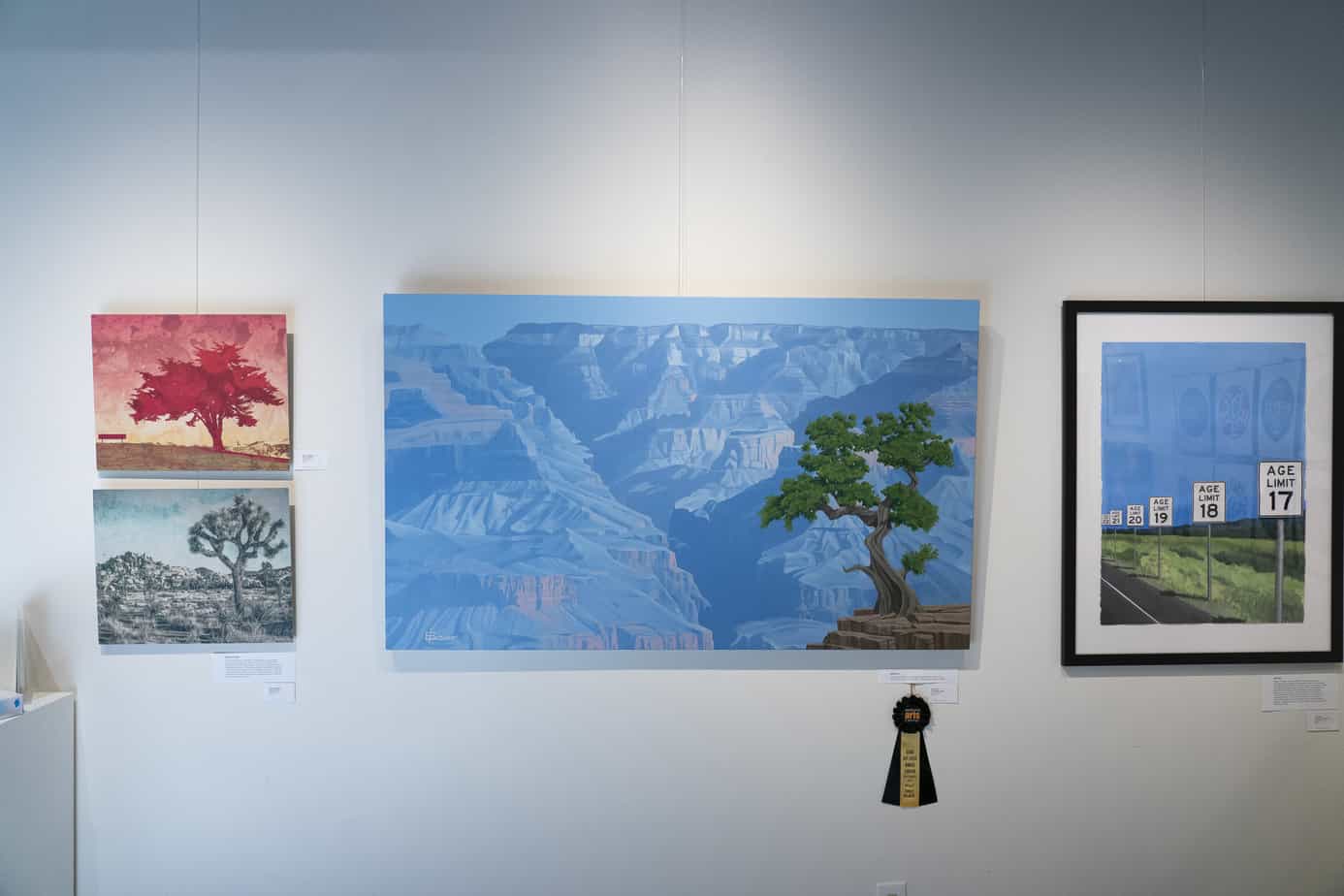
Nancy Rupert’s mosaic work, “2020 Continent Breaking Apart,” revealed more than even she anticipated. Rupert said that during the COVID-19 pandemic response, when art classes were canceled and everything began closing down, she used the time to be creative.
“I had several paintings that I had done in various painting classes at Coconino Community College and they were good, but not great — not something you want to put on the wall,” Rupert remembered. “So I started cutting them up and decided that I would repurpose them. And as I was laying this all out, my husband, David looked at it and said, ‘That looks sort of like a map.’ And that’s when I had an ah-ha! moment. I wanted to cut it all apart and put it back together in a new way and a different form.”
Rupert began laying out the pieces in a grid — unintentionally, she said — in which there were 19 squares from top to bottom and 34 squares from side to side. The total number of squares in the work is 646.
“I love numbers that have that kind of balance to them,” Rupert said. “It starts and ends with the same number. And then I looked it up online. Well, lo and behold, it told me that isolating yourself is not suitable for you. Thus, angel number 646 reminds you that you are in a free world interacting and socializing freely with you.”
“I’m very partial to mosaic work and I can see all the detail and work that went into it,” Lattanzi said. “I love the colors. I love that every little square is a painting within a painting. I love when you step away you see another kind of picture that emerges from a distance and I also loved all the symbolism in the 2020 vision.”
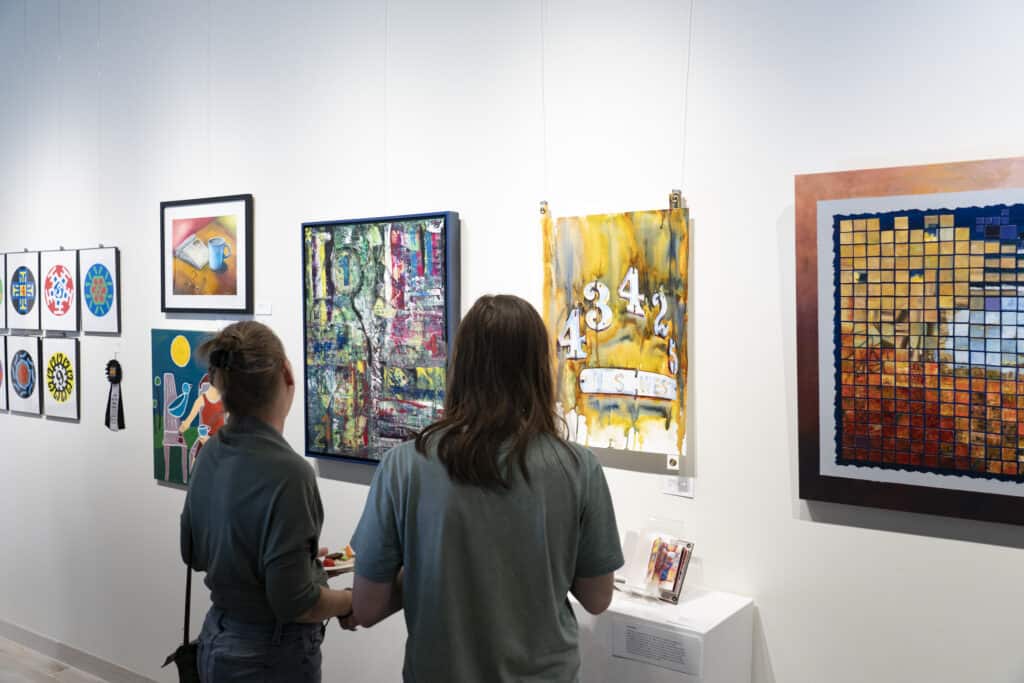
Third place-winner Cindy Betzer Pharis’s painting “Not my DNA. I didn’t kill Nobody” depicted the 12 years, 4,380 days or 105,120 hours that Clemente Aguirre-Jarquin waited on death row after being wrongfully accused by a woman whose DNA was later found in a blood sample that was not tested for several years.
“A number represents a value that quantifies,” Betzer Pharis said. “In this case, the number quantifies the amount of time Clemente feared for his life and the amount of time he no longer had freedom …. It took 12 years to test for DNA because the police looked no further.”
“This spoke very strongly to me because it’s about someone who was in prison that shouldn’t have been in prison and all the numbers symbolize something special about this unfortunate situation that this person was in,” Lattanzi said.
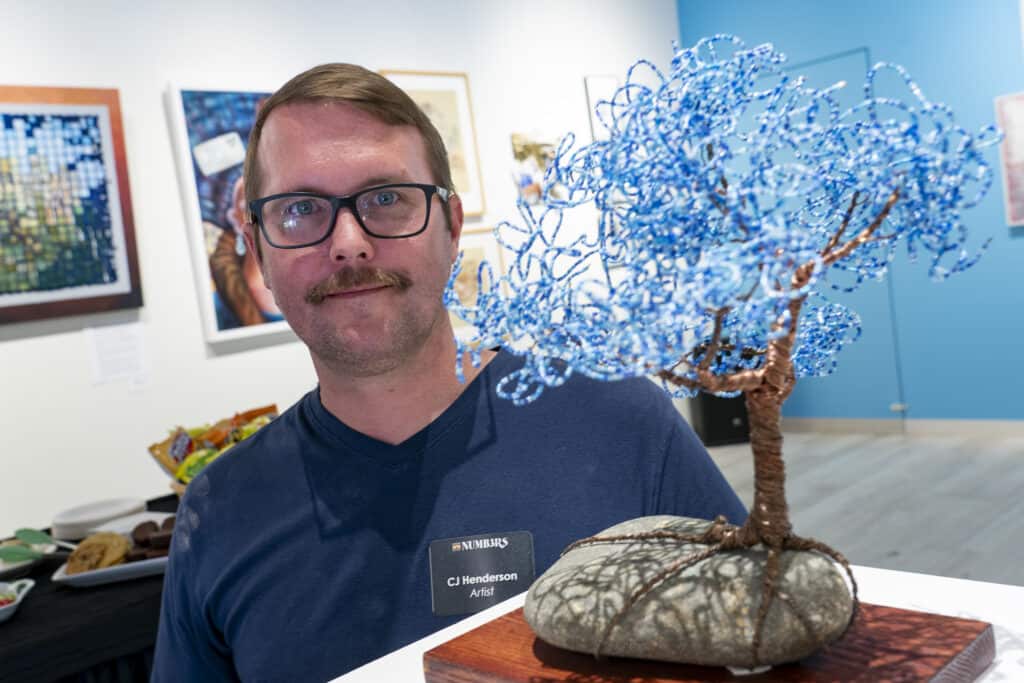
C.J. Henderson’s mixed media sculpture “Jacaranda” consisted of 20,000 tiny blue-and-white seed beads on copper wire. The wire was formed into the shape of a tree and anchored around a river rock for stability.
“The jacaranda tree is reminiscent of when I would visit my grandfather in Camarillo, Calif.,” Henderson said. “I used to visit around my birthday in June and I always thought the trees bloomed blue and purple flowers for me.” Henderson received an honorable mention for his work.

